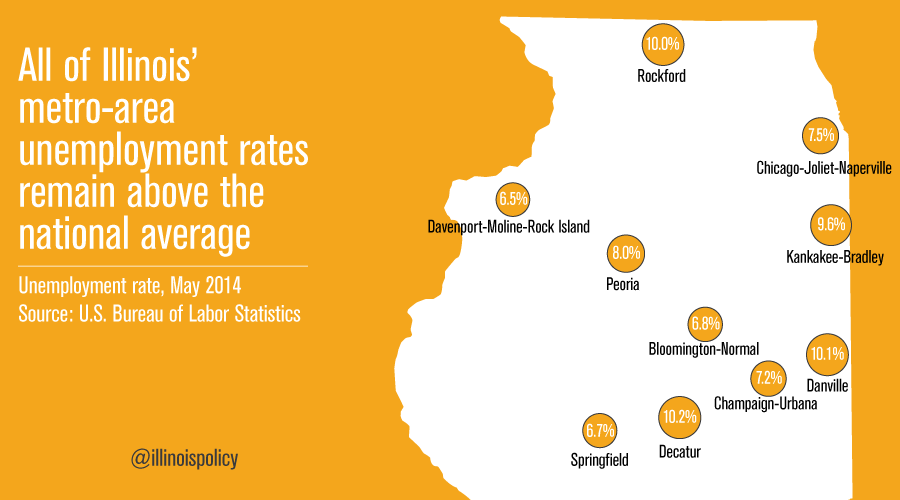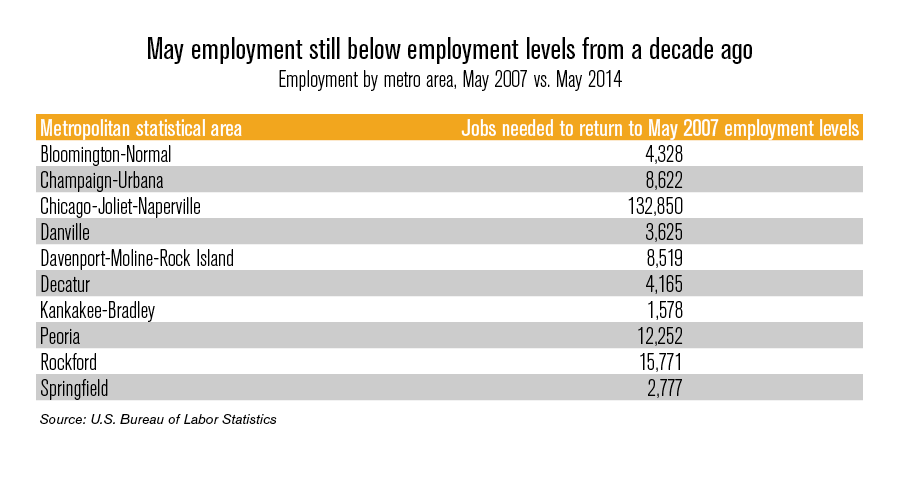Illinois metro areas’ employment numbers lower than they were decade ago
Employment in Illinois’ metropolitan areas improved in May, but employment growth is still far behind what it should be, according to data from the Bureau of Labor Statistics. All 10 metropolitan areas saw month-over-month and year-over-year improvement of their unemployment rates. Unfortunately, every Illinois metro area has an unemployment rate above the national average of...
Employment in Illinois’ metropolitan areas improved in May, but employment growth is still far behind what it should be, according to data from the Bureau of Labor Statistics.
All 10 metropolitan areas saw month-over-month and year-over-year improvement of their unemployment rates. Unfortunately, every Illinois metro area has an unemployment rate above the national average of 6.3 percent. The Danville, Decatur and Rockford areas still have unemployment rates above 10 percent.
 Recently, the BLS announced that employment at the national level has finally reached its pre-recession levels.
Recently, the BLS announced that employment at the national level has finally reached its pre-recession levels.
Illinois’ metro areas haven’t reached that point yet. The number of workers employed in Illinois’ metro areas remains far below 2007 levels.
Every metro area has at least 1,000 fewer workers employed today than it did a decade ago.
The slow employment recovery is especially troubling when considering that the state’s working-age population has been growing. Employment opportunities haven’t even recovered from the recession, let alone kept up with population growth.
Illinois needs to attract workers so that these cities can achieve sustainable employment and job creation. To do that, the state needs to embrace an agenda for growth. Such an agenda should include:
- Transitioning away from income taxation
- Reforming workers’ compensation and unemployment insurance
- Reducing the costs of starting and operating a business
This agenda contrasts sharply with the pro-tax, anti-reform status quo. That’s because it’s what Illinois needs, rather than what most politicians want.

